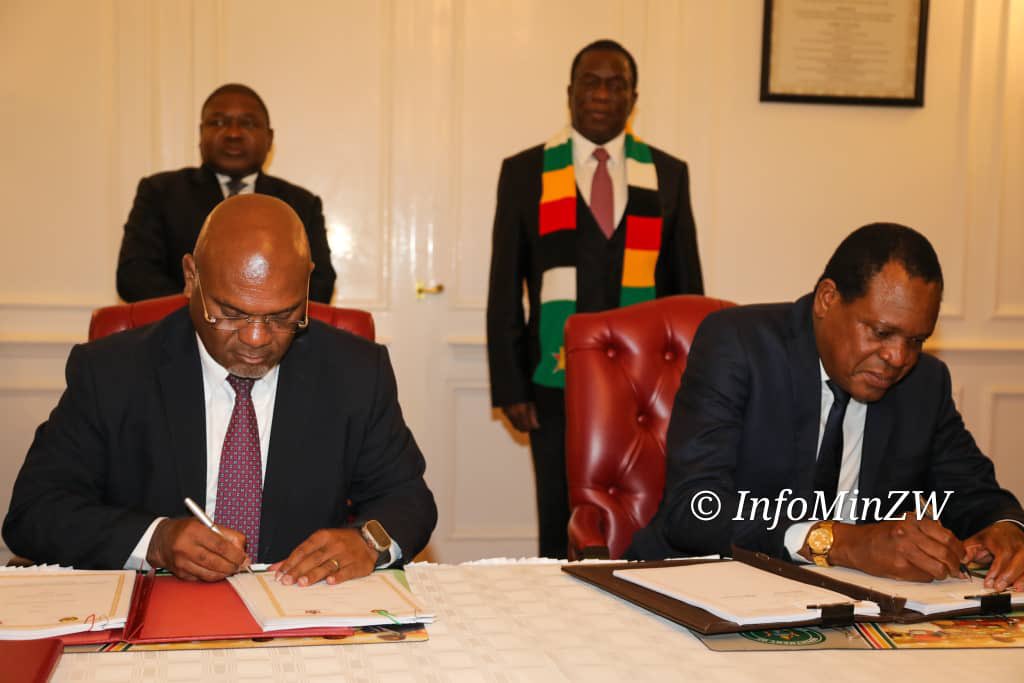HARARE – Zimbabwe and Mozambique have set up a commission that will manage the Buzi, Pungwe, and Save River (BUPUSA) water resources shared by both countries.
BUPUSA watercourse commission was formed to save resources that have, over the years, suffered from extreme climate effects such as floods, droughts and cyclones.
“The Bilateral Tri-basin Commission will strengthen the good neighborliness and the social and economic ties that already exist between Mozambique and Zimbabwe,” said Carlos Mesquita, Minister of Public Works and Water Resources in Mozambique when signing the agreements on behalf of his government, last month in Harare.
“Further to enhancing cooperation between the two countries, the BUPUSA Commission will also create a platform for dialogue between the two countries on the management of the three basins,” added Mesquita.
Meanwhile, Dr Anxious Masuka, Minister of Lands, Agriculture, Fisheries, Water, and Rural Development – Zimbabwe, commended the establishment of the commission, which he said “will ensure that water is managed in an environmentally friendly and sustainable manner to promote peace and provide prosperity for the stakeholders in Mozambique and Zimbabwe.”
The signing of the agreements was witnessed by President Emmerson Mnangagwa, and Mozambican President Filipe Jacinto Nyusi.
The two leaders commended the achievement and emphasized the need to operationalise the agreements and execute the mandate of the new tri-basin organisation.
The Commission, a first of its kind in the region, having oversight over three basins, will manage the planning, development, and management of the water resources within the tri-basins.
The basins are exclusively shared by the two countries and drain into the Indian Ocean.
These three basins are located along the Beira corridor, an important economic corridor that links the Beira harbour to the hinterland.
In addition to hydro-meteorological events, human activities have also been cited as the cause of the deteriorating water quality.
Small-scale gold miners in the basins have been identified as major polluters impacting surface water, groundwater, and wetlands adjacent to the river.
Furthermore, the two countries have cited inappropriate catchment management activities in various parts of the basins, such as shifting and slope cultivation, charcoal burning, and gold panning, which have led to land degradation including increased sediment loads and deteriorating water quality.
















